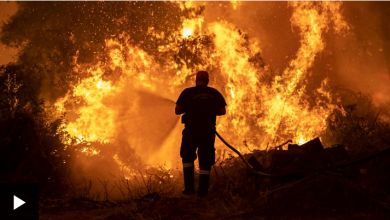Life StyleNews
Polio resurfaces in Tamale

Public health experts in the country are on a high alert following the detection of the type-two polio virus in drains in Tamale in the Northern Region.
The virus was found in a sewage in the Tamale municipality during an environmental health surveillance last week.
The Director of Public Health at the Ghana Health Service (GHS), Dr Badu Sarkodie, said although not found in a person, the virus could be transmitted to humans when they came into contact with it.
The type-two strain of the polio virus was confirmed earlier this week by the Noguchi Memorial Institute for Medical Research (NMIMR) to be similar to the type that broke out in Nigeria recently.
Nigeria is one of only three countries in the world endemic with different types of wild polio virus, along with Afghanistan and Pakistan. This year, Nigeria has recorded nine cases of polio.
The International Health Regulations (IHR) classifies Nigeria as a state infected with wild polio virus type-one (WPV1), circulating vaccine-derived polio virus type-one (cVDPV1) or circulating vaccine-derived polio virus type three (cVDPV3), with potential risk of international spread.
Mass vaccination
Dr Sarkodie told the Daily Graphic in an interview that it could be a possible case of cross-contamination, explaining that “reports from the field will determine if the country should embark on a mass vaccination for children”.
He said although the virus was not found in a person, a team of researchers from the national, regional and district offices of the GHS was currently on the field assessing the country’s polio vaccination threshold.
He said should they find that there was even a small percentage of children who had not been vaccinated against polio, the GHS would have no option but to declare a mass vaccination exercise countrywide for children under five years.
He said for the past two years, children under five years had not been given the polio type-two vaccine after it had been declared eradicated in 2014 by the World Health Organisation (WHO) as the country switched from trivalent to bivalent oral polio vaccination (OPV) in 2016.
There are three wild types of polio virus (WPV) — types one, two and three — and the trivalent OPV contains vaccines for all three types of polio virus, while bivalent OPV contains vaccines for only polio virus types one and three.
Routine surveillance
Dr Sarkodie said since 2016 when the country started conducting routine environmental surveillance, that was the first time it had come across polio in the environment.
He said with Ghana’s last confirmed wild polio case in 2008, the WHO declared the country polio free in 2014, after which public health experts had been conducting routine surveillance, both in humans and the environment, to ensure that it did not resurface.
He, however, expressed confidence that children in the country had a high immunity threshold due to the routine vaccinations that had been ongoing across the country, saying: “It was due to this high immunity that the virus was only found in a drainage.”
Public health emergency
Last Wednesday, the GHS, together with the Ministry of Health, issued a press release to declare a public health emergency following the detection and confirmation of polio virus type two from an environmental sample in the Tamale metropolis.
In response to that, the release said, the MoH, together with its partners, had initiated actions, including a detailed field investigation to identify the possible source of infection and determine the extent of geographic spread.
The surveillance, it said, was also going to conduct a risk assessment and its potential for further spread, including transmission to humans, and enhance surveillance.
Prevention of spread
As part of measures to prevent further spread and protect humans, the ministry encouraged the public to observe improved personal hygiene and good sanitation practices, such as washing of hands often with soap under safe running water after using the toilet, before preparing food, before eating, before feeding a baby, among others.
It also encouraged parents and caregivers of infants to complete the instituted vaccination schedule to protect their children.
The statement gave an assurance that the Ministry of Health, together with its partners, was doing everything possible to prevent the further spread of the virus from the environment to humans.
Source: graphic.com.gh



